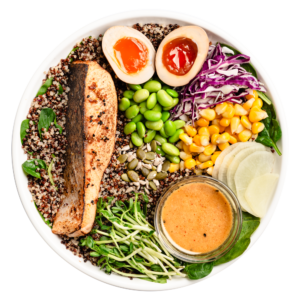Probiotics are live microorganisms that provide numerous health benefits. They are commonly known as “good” bacteria. These beneficial bacteria play a vital role in maintaining digestive health. Many people overlook the importance of gut health, but it significantly affects overall well-being. This article explores the power of probiotics and how they support digestive health.
What Are Probiotics?
Probiotics are tiny organisms, often bacteria or yeast. They naturally inhabit the gut and contribute to a balanced microbiome. The microbiome consists of trillions of microorganisms, including bacteria, viruses, and fungi. A healthy microbiome is essential for proper digestion and immune function.
Probiotics can be found in various foods and supplements. Common sources include yogurt, kefir, sauerkraut, kimchi, and other fermented foods. Many people incorporate these foods into their diets to enhance gut health.
How Probiotics Support Digestive Health
Probiotics offer several benefits for digestive health. First, they help maintain a balanced gut microbiome. An imbalance in gut bacteria can lead to digestive issues like bloating, gas, and constipation. Probiotics restore this balance by increasing the number of beneficial bacteria.
Second, probiotics can improve digestion. They help break down food and absorb nutrients more efficiently. This process reduces digestive discomfort and promotes regular bowel movements. As a result, incorporating probiotics into your diet can lead to better overall digestion.
Third, probiotics can enhance gut barrier function. The gut barrier prevents harmful substances from entering the bloodstream. A healthy gut barrier helps protect against infections and inflammation. It strengthens this barrier, reducing the risk of digestive disorders.
Probiotics and Common Digestive Issues
Probiotics have been shown to alleviate various digestive issues. For example, they can be effective in treating irritable bowel syndrome (IBS). Research indicates that specific probiotic strains can reduce symptoms like abdominal pain and bloating. By addressing these symptoms, probiotics improve the quality of life for individuals with IBS.
Additionally, probiotics can help prevent and treat diarrhea. They are particularly useful for managing antibiotic-associated diarrhea. Antibiotics can disrupt the gut microbiome, leading to an imbalance. Taking probiotics during and after antibiotic treatment can help restore balance and reduce the risk of diarrhea.
Moreover, probiotics can support those with lactose intolerance. Many people struggle to digest lactose, the sugar found in milk and dairy products. Some probiotic strains can help break down lactose, making it easier to digest. This can allow individuals with lactose intolerance to enjoy dairy products without discomfort.
Choosing the Right Probiotics
When selecting probiotics, it’s essential to choose the right strains. Different strains offer various benefits. Look for products that contain well-researched strains, such as Lactobacillus and Bifidobacterium. These strains have been shown to support digestive health effectively.
It’s also important to consider the number of live organisms in each serving, measured in colony-forming units (CFUs). A higher CFU count often indicates a more potent product. However, the effectiveness of probiotics also depends on the strains used and individual health needs.
You can find probiotics in various forms, including capsules, powders, and fermented foods. Incorporating fermented foods into your diet is an excellent way to boost your probiotic intake. Yogurt, kefir, sauerkraut, and kimchi are delicious and nutritious options.
The Importance of Prebiotics
Prebiotics are non-digestible fibers that serve as food for probiotics. They help nourish beneficial bacteria in the gut, promoting their growth and activity. Foods rich in prebiotics include garlic, onions, bananas, asparagus, and whole grains. Including prebiotic-rich foods in your diet can enhance the effects of probiotics.
A balanced diet that includes both probiotics and prebiotics is essential for optimal digestive health. This combination helps maintain a healthy gut microbiome and supports overall well-being.
Potential Side Effects and Considerations
While probiotics are generally safe for most people, some may experience mild side effects. These can include gas, bloating, or digestive discomfort, especially when starting a new probiotic. These symptoms usually subside as the body adjusts.
Individuals with weakened immune systems or underlying health conditions should consult a healthcare professional before taking probiotics. It is important to ensure that probiotics are appropriate for your specific health needs.
Harnessing the power of probiotics can significantly improve digestive health. These beneficial microorganisms help maintain a balanced gut microbiome, enhance digestion, and alleviate common digestive issues. By incorporating probiotics and prebiotics into your diet, you can support your digestive health and overall well-being.
As you explore different probiotic sources, focus on well-researched strains and products. A healthy gut is essential for optimal health, and probiotics can play a crucial role in achieving that balance. Consider adding probiotics to your daily routine for a happier, healthier gut.
Create your own probiotic-rich meal now! Order from SaladStop! and enjoy a delicious, gut-friendly experience.




